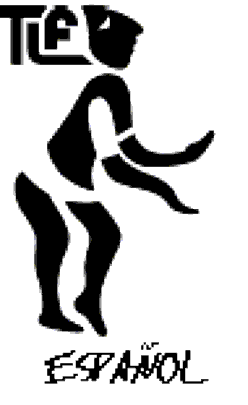
Vol. xxxviii # 2
December, 2017
Returning to la Fragua
--George Drance sj
 |
tlf news |
Vol. xxxviii # 2 |
December, 2017 |
Returning to la Fragua --George Drance sj | |||
|
I first came to tlf in the summer between my studies in humanities and philosophy. It was the mid 80s. Heroes like Rutilio Grande, Oscar Romero, and the Maryknoll women missionaries of El Salvador inspired me to strive for the Kingdom of God here on earth: a kingdom of Justice and Peace. I returned the following summer and once again in the mid 90s for a six-month practicum as a newly ordained deacon. In that ten years, the Jesuits of the UCA had been murdered.and as I write this, I hear gunshots in the distance. It seems we still have a ways to go for Justice and Peace; and yet considering the circumstances that bring me back, and remembering how much tlf has formed me as a person over the years, I'm called to hope more than ever for that possibility to be realized. My own path as a Jesuit artist had taken me many places spanning those years: starting a theatre company in Kenya that was eventually banned by the government, working at the American Repertory Theatre and ImprovBoston during my studies in Theology, graduate school for acting at Columbia University, and joining La MaMa Experimental Theatre Club in New York City (where my own company, Magis Theatre, has performed several times.) It was my work with La MaMa that brought me back to Central America. Ellen Stewart, Andrei Serban and Elizabeth Swados had a vision of a theatre that could transcend cultural differences through the essential theatricality of sound, gesture and intention. This kind of expression was the foundation of their magnum opus: The Trojan Women based on Euripides text and part of a Trilogy of plays, performing all over the world using ancient languages and invented sounds to touch the heart and the gut, NOT the head of the audience. It became an international phenomenon, giving evidence to Ellen's vision that it was possible to move hearts with a kind of borderless theatre that took the audience to a visceral and intensely human world of anguish and triumph. After touring for many years with this production, the team was looking for a way to keep this legacy growing. We decided to do workshops with local groups who were interested in exploring themes of violence and war in their art and help them mount a production of it with their group. The Trojan Women Project's roster, so far, includes Guatemala, Cambodia and Kosovo. It was during my time in Guatemala that I felt a deep desire to come back to la fragua. This week I've been giving workshops to the actors in the company and to the students of the Ballet School. Like a conversation with an old friend that seems to pick up right where it left off, I feel at home and am immensely proud to see what Jack and la fragua have accomplished over the years, despite enormous obstacles. Lizeth Caballero, the administrator of the ballet school had her first ballet class during my second trip to the teatro. Edy Barahona, director of the company of actors, was the lead actor during my first visits, and his passion on stage as a performer is etched into my memory. Chito Inestroza was one of the new guys, and now (like me) he's one of the old guys! And here's where the hope comes. I find myself in a theatre, completely and adeptly staffed by la fragua "graduates." Their grandchildren are in my dance class. Techniques I developed with Magis Theatre that had their roots in those first visits to the teatro are now being shared with the new generation of actors. la fragua is in its 38th Season hosting companies from all over Latin America: a rich harvest of seeds that Jack planted long ago on a hope and a prayer, nourished by the generous collaboration of all of you reading this. Even more: I can see that la fragua has been woven into the fabric of the community. Weaving is an important art in Central America. In Guatemala, I learned that every Mayan woman learns to weave until it becomes as natural as breathing. la fragua is no longer a place where just a small handful of cipotes put on shows. It has become a huipil: a second skin woven from the threads of the communities it has hosted: artists, families, students, workers; imagining more for the world because of the opportunities they have been given by the teatro. The late Sam Shepard, who started out at La MaMa when no one else would produce his plays, wrote of Ellen Stewart saying "in downtown theatre, Ellen was the most generous... she just put on plays."" Without her American theatre would have no Sam Shepard, or Liz Swados, or countless others. Without Jack Warner and la fragua it would be a lot harder to witness and see and celebrate the cultural identity of the people of Honduras. Karen Blixen wrote in her short story "Babette's Feast," these beautiful words: "in the heart of the artist, there exists one great cry -- 'give me the chance to do my best.'" This is exactly what teatro la fragua has done for the last 38 years. Fr. George Drance sj is artist-in-residence at Fordham University, artistic director of Magis Theatre Company, and a resident artist in La MaMa's Great Jones Repertory Company. |